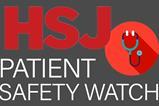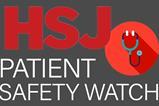HSJ is now hosting the Patient Safety Watch newsletter, written by Patient Safety Watch chief executive James Titcombe.
Good afternoon and welcome to the latest edition of the Patient Safety Watch newsletter.
Culture change in neonatal units ‘long overdue’…
Lady Justice Thirlwall has made her first public address as chair of the inquiry examining Lucy Letby’s murders. The appeal court judge said: “We all know that there have been many inquiries into events in hospitals and other healthcare settings over the last 30 years. The case of Beverley Allitt who murdered babies at Grantham Hospital in the 1990s comes to mind. Everyone was determined that it would not happen again.
“It has happened again. This is utterly unacceptable…
“No one can argue with the proposition that babies in neonatal units must be kept safe and well cared for. What is needed is the practical application of that proposition everywhere. In many units, it will require profound changes in relationships and culture. This may not be easy to achieve but it is necessary and long overdue.”
Lady Justice Thirlwall revealed a “wide-ranging and detailed” questionnaire had been sent to hospitals with a neonatal unit, to be completed by “the medical director and a senior non-clinical manager” and including questions about whether the unit has CCTV or if there are plans to install it, following suggestions by the families involved in the case.
…as are improvements in maternity services
In a British Medical Journal comment piece, leading academics, researchers and advocates have argued that “a hard look” at how improvement is working in maternity services is now “overdue”.
The piece says maternity services are “seeing repeated high profile organisational failures and soaring clinical negligence claims, together with grim evidence of ongoing variation in outcomes, culture, and workforce challenges and inequities”. The writers argue NHS England’s maternity safety support programme has not been publicly evaluated and “some trusts have been in the programme for several years, and some trusts that exited the programme have re-entered”.
The commentary highlights several problems including so-called “priority thickets”, where “units become overwhelmed, distracted, and confused, paralysing their ability to respond and often lacking the resource and expertise to convert recommendations into effective local solutions”. The writers add this problem is “compounded by common weaknesses in existing improvement efforts. Many are not evidence-based, do not include maternity service users or staff in their design, do not align with human factors and ergonomics strategies, lack support for implementation, and are uncosted.”
The piece comes as Care Quality Commission deputy chief executive Kate Terroni told BBC News of her concerns about the quality of maternity services: “We’ve seen this deterioration, and action needs to happen now, so that women can have the assurance they need that they’re going to get that high-quality care in any maternity setting across England.”
Regular readers of this newsletter will know maternity safety problems are sadly often a feature of the stories covered. In a service where the annual cost of harm is estimated to be £4.2bn, this timely commentary adds to a growing chorus of voices arguing a new approach to maternity safety is needed.
NHS interpreting service problems contributed to baby deaths
A BBC investigation has found interpreting issues were a contributing factor in multiple patient deaths and serious injury cases, including the deaths or serious brain injuries of at least 80 babies in England between 2018 and 2022.
Data obtained by the broadcaster via a Freedom of Information request to the Healthcare Safety Investigation Branch revealed 2,607 cases of babies dying or being diagnosed with a severe brain injury in the first seven days of life were reviewed in 2018-2022. Of these, 80 included references to interpretation or communication problems due to language difficulties in the report’s recommendation section, so were therefore considered a contributing factor to the incident.
Royal College of Obstetricians and Gynaecologists’ Hassan Shehata said the service was “failing some of the most vulnerable people in society” while language barriers “further exacerbate the risk with women struggling to access, engage with maternity services and communicate their concerns to healthcare professionals”.
NHSE said it was reviewing if and how it could make improvements.
In other news this edition
NHS told to set up system to monitor drugs prescribed to women during pregnancy that could damage their babies
The Sunday Times has reported that Patient Safety Commissioner Henrietta Hughes has asked for “concerted effort by the NHS across its 42 local regions to control the use of teratogenic drugs – medicines which can cross the placental barrier in the womb and leave babies disabled for life”.
Her recommendation follows continued concern about sodium valproate, which is prescribed to treat epilepsy but can also cause harm to babies in the womb during pregnancy and has left many children disabled and needing lifelong care.
Dr Hughes said she was “appalled” to learn women are only being told about problems with their medication once they are already pregnant, warning: “Without a system to monitor drugs like valproate there could be other drug scandals in the future.” She said she wants a system in place by next September to monitor valproate, expanding to all teratogenic drugs in 2025.
Man died avoidably after doctors missed fatal blood clot
The Parliamentary and Health Service Ombudsman has found a man’s death from pulmonary embolism was avoidable after his doctors failed to test for deep vein thrombosis. This was despite DVT being noted as a risk following the 46-year-old’s knee surgery.
The man visited accident and emergency two weeks after having surgery as he was in lots of pain and, although the doctor questioned whether he might have DVT, no testing was done for this before he was discharged. A fortnight later, he fainted at home and could not be revived.
His family complained to PHSO, which found, that had doctors tested for DVT, it would have likely been found and treated.
Rob Behrens, Parliamentary and Health Service Ombudsman, said: “When mistakes like this are made it is vital that they are learned from so they do not happen again. That’s why it’s important to raise concerns when things go wrong. A well-handled complaint that is embraced by the organisation involved has the power to reveal the truth and even create lasting positive change by driving up standards.”
Challenging NHS hierarchies ‘can be lifesaving’
In an opinion piece, BMJ news editor Zosia Kmietowicz shares her first-hand experience of how an emergency department matron’s courage to challenge a doctor’s decision to order an X-ray for foot pain and instead start antibiotics for suspected meningitis potentially saved her son’s life.
The 14-year-old’s diagnosis of meningococcal meningitis was confirmed a few days later, by which time the prompt treatment meant he was already recovering.
Ms Kmietowicz reflects on the case of Martha Mills, who died of sepsis aged 13 in 2021 but would have likely survived had doctors escalated her care sooner and, following campaigning by her parents, is the namesake for an incoming legal right for parents and carers to ask for a second opinion.
Ms Kmietowicz writes: “Challenging the decisions of another clinician — just as matron did on that Saturday when my son was sick — should be possible without the fear of damaging your career, your concerns being dismissed, or ending up feeling humiliated. Being open to different opinions and treating your colleagues with respect should be the foundation of any organisation.”
Peers flag lack of oversight for homecare medicines services
A report from the House of Lords Public Services Committee has raised concerns there appears to be little oversight of the homecare medicines services market, particularly when it comes to patient safety. During its inquiry, the committee heard evidence of patients experiencing delays and errors when using homecare medicine providers.
The report read: “No one – not the government, not NHSE, not patient groups, not regulators, knows how often, nor how seriously patients suffer harm from service failures in homecare. This indicates a significant failure of oversight and hinders the ability of NHSE to ensure patient safety.”
Sharing some good stuff…
Martha’s Story
The Patient Safety Movement Foundation has published a powerful video of Martha Mills’ Story, told by Martha’s mother Merope. A hugely moving and highly recommended watch and important context as the NHS in England introduces Martha’s Rule.
“Why Aren’t They Reporting Incidents?” Influences on Reporting Behaviour
I’m a big fan of Steven Shorrock (an interdisciplinary humanistic, systems and design practitioner who many readers will already know). Steven has recently published a typically brilliant piece examining the influences on reporting culture – a crucial consideration for patient safety and an invaluable read.
Why is safety in intrapartum electronic fetal monitoring so hard?
As the final share for this edition, I’d like to flag this recent paper published in the BMJ (Dixon-Woods et al). The paper is a qualitative study combining human factors/ergonomics and social science analysis, looking into intrapartum fetal monitoring – a hugely important issue for maternity safety. It’s an insightful paper and one of the best examples I’ve seen in applying the Systems Engineering Initiative for Patient Safety model to a complex patient safety issue.
That’s all for this edition. The coming month will be a busy one for Patient Safety Watch as we publish our next major research project, in partnership with Imperial College London, looking at the global picture of patient safety, in December. We’ll be sharing more information on this in future editions.
In the meantime, thanks for reading and please stay safe.
James Titcombe































No comments yet